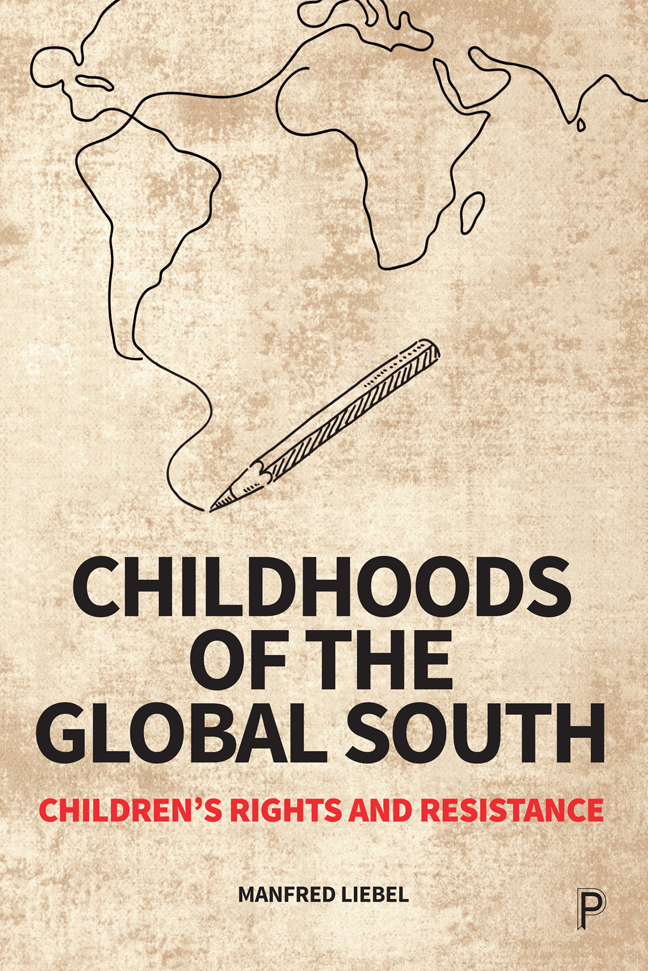1 - Submission and humiliation of childhoods from a decolonial perspective
Published online by Cambridge University Press: 23 January 2024
Summary
Introduction
In this chapter, I explore how the lived childhoods of the Global South result from colonization and how children from popular sectors are affected by its aftermath in the postcolonial era marked by the coloniality of power. For children, being affected means being subjugated and humiliated in various ways, but it also ignites their resistance. The basic thesis is that the modern pattern of childhood is a colonial construction in the triple sense: it is inspired by the colonial relationship, it serves to justify colonial conquest, and in the postcolonial era, it serves to render invisible other childhoods that do not conform to the Western norm or to make them appear deviant and backward. After explaining the multiple forms of subjugation and humiliation of childhoods under conditions of coloniality, I explain the need for and possible ways of decolonizing childhoods and the practice of children's rights. I begin by highlighting some of the ideological underpinnings that, in my view, foster the subjugation and humiliation of children in colonial and postcolonial contexts.
Binary thinking as an ideological basis for humiliation
The subjugation and humiliation of children, to which I refer here from a decolonial perspective, finds its ideological basis in binary categories constructed in a hierarchical and pejorative manner, in which a distinction is made between ‘us’ (belonging, normalized) and ‘others’ (excluded, deviant), according to Edward Said ([1978] 2013), called ‘othering’ or ‘otherness’. This binary coding has its origins in the thoughts of philosopher Rene Descartes and continues to have an effect today. It refers to territories as well as to people and populations. I will now name some of these binary codes:
• developed versus underdeveloped (technically, socially and culturally);
• modern or progressive versus backward;
• civilized versus barbaric;
• cultivated versus nature-bound;
• rational versus irrational;
• self-controlled versus emotion-driven;
• educated and conscious versus ignorant and stupid (mastery of a certain knowledge, a certain way of thinking, includes mastery of a certain language – discursive power);
• ability or power to act versus inability or powerlessness to act (as a personal characteristic); and
• superior versus inferior (in the sense of ‘power over’ and devaluing people).
With reference to similar binaries, Michael Bourdillon, Sylvia Meichsner and Afua Twum-Danso Imoh refer to the category of childhood as follows:
These binary pairs are associated and can easily result in the stereotypical categorisation of ‘good childhood’ as opposed to ‘bad childhood’.
- Type
- Chapter
- Information
- Childhoods of the Global SouthChildren's Rights and Resistance, pp. 25 - 42Publisher: Bristol University PressPrint publication year: 2023



